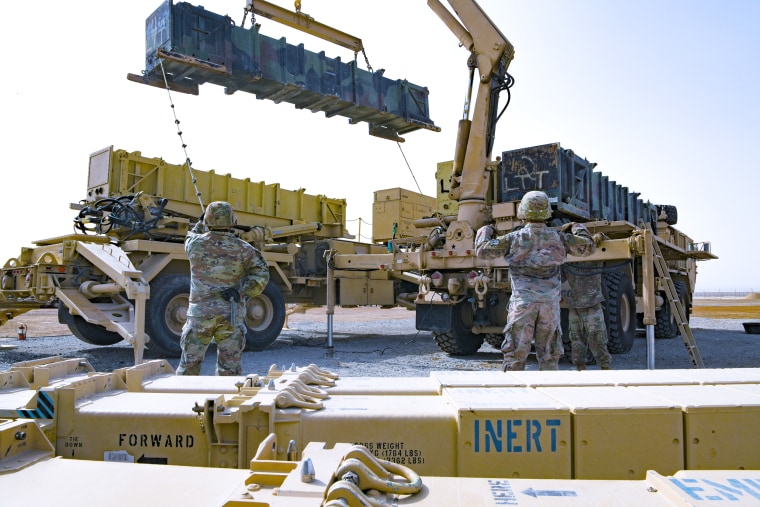The Biden administration has discussed slow-rolling military aid to Saudi Arabia, including shipments of advanced Patriot missiles, to punish the kingdom for leading OPEC’s decision to cut oil production, say two U.S. officials and a source familiar with the discussions.
Some military officials support the idea, said the sources, but others want to make sure the military relationship between the U.S. and Saudi Arabia is kept separate from any retribution by the administration.
The Saudis have a contract for 300 Patriot 104-E guided ballistic missiles (GEM-T) that are used in Patriot air and missile defense systems, a critical capability for the Saudis, who face a persistent threat of missiles and drones fired from Houthi rebels in Yemen. The Saudis have the Patriot launch systems but need a re-supply of the missiles to intercept incoming threats.
Some military leaders are concerned that cutting off equipment like Patriot missiles could put American troops and civilians in Saudi Arabia in danger, as well as threatening regional defense and security relationships, and have made the case to top administration officials that walling off the military relationships would be in line with what previous administrations have done amid diplomatic disagreements, said current and former military officials.
While many options are on the table, nothing had been decided and there are not likely to be any decisions or announcements for some time, said the two U.S. officials and a source familiar with the discussions. They pointed to the upcoming December OPEC meeting as an inflection point, and said that if the Saudis increase production after that meeting then the U.S. may not take any actions against Saudi Arabia at all.
Another option on the table is to exclude the Saudis from any upcoming military exercises and engagements like regional meetings or conferences, the officials said. The U.S. and allies in the region have been working on an integrated air and missile defense system that would connect systems throughout the area, providing coordinated warning and response, and cutting the Saudis out of events or air defense drills would send them a clear signal.
In a statement, a National Security Council spokesperson said, “This is not an accurate list of steps under consideration.”
The officials stressed that the Saudis are still expected to take part in an upcoming exercise and some regional engagements over the next few weeks.
The limits of influence
The recent OPEC decision to cut oil production by 2 million barrels per day was a political embarrassment to President Joe Biden, proving the limits of White House influence even after Biden traveled to Jeddah in July and met with Saudi Crown Prince Mohammed bin Salman.
OPEC’s move spurred a back and forth between the U.S. and Saudi Arabia, with Biden administration officials vowing there would be consequences for the Saudis.
The current and former officials said there is no real talk about changing the U.S. troop presence in Saudi Arabia for now, but right after the OPEC announcement the administration did begin talking about how many U.S. troops are in Saudi, what they do, and how much it costs the U.S. to have them there.
The administration is furious and really wants to punish the Saudis, said the officials, but it’s complicated given that other partners and allies in the region rely on Saudi Arabia. “There needs to be a balance between punishing the Kingdom of Saudi Arabia and not making life more difficult or dangerous for the U.S.,” one U.S. official said.
One White House official said that while changes to security assistance are under consideration the Biden administration is not in a rush to take action.
The White House consulted with members of Congress before Biden’s trip to Saudi Arabia in July, but so far there has not been similar outreach to Congress about potential moves to punish Riyadh for the October OPEC move.


